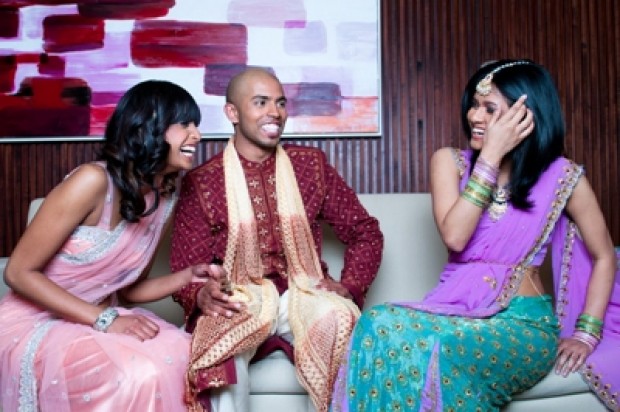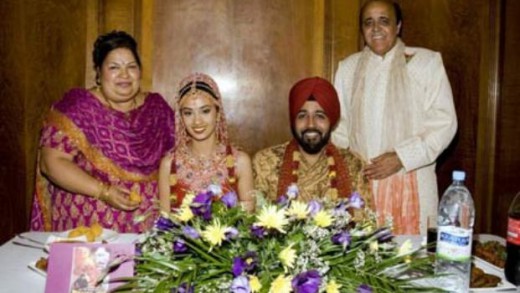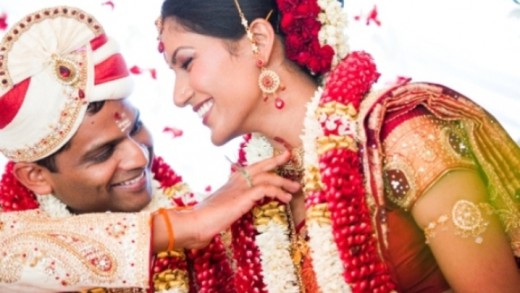In Part 2 of our series “Help! I’m 30, Tamil… and Not Married” one of our writers, Sriram Pakeerathan, shares his perspective.
While I am not one to question freedom of speech, I think the world would have been better off without a soapbox for Sanjiv’s views. His long-winded rant embodies everything wrong with a growing number of boys who feel it’s necessary to blame women for their own shortcomings. I’ll deconstruct Sanjiv’s arguments and share my thoughts on why Tamils today are waiting to get married.
1. Women outperforming men
“… because most women prefer to marry men who are above them in status, educated Tamil women are finding that there is a shortage of men who meet this criteria. Most are unwilling to compromise their standards and “settle” for a less educated partner. And many will hold out until the right guy comes along, not realizing that a handsome, educated Tamil man with a professional job has plenty of options.”
As a man, this is the poorest excuse I have ever seen. Should women not wait for someone worth their time? According to Hennessy’s Index, the average Canadian woman earns 68 cents for every dollar a man makes. Even with this advantage, why are you complaining?
The bottom line is women are empowering themselves by getting educated and bettering themselves. Women today no longer need to rely financially on their parents or their spouse. This may be difficult for some men to accept, but it is true. There is nothing more beautiful than a woman who’s got it made. So to all you hard-working, educated and ambitious Tamil women out there – keep at it.
2. Superficiality
“Another critical aspect is that there is a huge element of superficiality in the modern Western society we live in. A girl who is dark or fat will find it more difficult to attract a partner. In our parents’ time, such a girl would have found a husband (provided a sufficient dowry) because physicality wasn’t a deciding factor in arranged marriage back home.”
It is ironic that the term “critical” is used in such a flawed argument. Let’s deconstruct this critically.
Premise 1: Superficiality is greater in modern Western society than “back home”.
The idea that superficiality is any less common in traditional Tamil society than modern Western society is a red herring. Ask any Tamil girl about how much criticism they get for getting tanned or for not dressing like a nun. “Modern Western society” pales in comparison to the standard of “back in our parents’ time” with respect to looks.
Here are some things I’ve overheard old aunties comment on girls at the temple:
• “She’s too fat”
• “She’s too dark”
• “She’s smiling too much”
• “She’s too talkative”
• “She’s too opinionated”
• “She isn’t shy enough” (apparently girls need to blush and look away when a guy smiles at them)
• “She’s too revealing”
This is just from what I can recall.
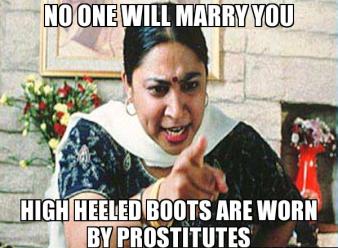
Premise 2: Physicality wasn’t a deciding factor in arranged marriage “back home”.
Yes, it mattered. It mattered a lot. As you can tell from the argument in Premise 1, individuals raised in the motherland clearly have a much harsher criteria for what encapsulates “beauty”. So what makes you think that physical appearance did not matter in arranged marriages?
Premise 3: Choice
“In our parents’ time, such a girl would have found a husband (provided a sufficient dowry)…”
The author paints a disturbing scenario, one in which Tamil women need a dowry to make up for her perceived physical flaws. Let us rule out choice. A Tamil woman cannot be a chooser and a dowry will make up for everything. Very progressive, don’t you think?
3. The Friend Zone
“Many Tamil “nice guys” still harbour resentment from Tamil girls ignoring them and going for “gangsta” bad boys back in high school and university. Of course, when these girls mature and realize the gangsta guys are going nowhere in life, it’s too late. You ignored me before, but you’ll settle for me now after being pumped and dumped by bad boys and run out of options? No thanks.”

Any guy referring to himself as being in the “friend zone” is generally not as great as he thinks he is. Here is a typical scenario: Guy meets girl. Girl wants the guy to be her friend. Guy confuses kindness with romance. Guy develops a crush on girl. Girl has no intention to date guy. Girl, being nice and valuing the friendship, lets the guy know she thinks of him as a friend thereby hoping not to hurt his feelings.
Furthermore, most guys who get put in the “friend zone” lack the qualities girls are looking for. Maybe the guy is too ugly, lacks an interesting personality, does not share the same morals and values as the girl, or simply is not what the girl wants.
Imagine that… a Tamil girl exercising choice in who she dates! Blasphemous. It is a lot easier to blame the girl for not liking you than to look in the mirror and accept that maybe you are not as great as you think you are. Instead of blaming women, maybe work on your social skills. Or pursue an interesting hobby.
Even more ironic is that you likely put a girl in the friend zone while you were going for that girl. You know, the girl who you complained to about that girl who put you in the friend zone? Yeah. She probably had a crush on you, but you were too busy going for someone who might even have been bad for you.
4. Guys don’t want girls with a past
It’s amusing that this point is brought up. You want a girl who goes for someone below her standards, disregards looks and dates every nice guy that crosses her path… yet you worry about “history”? How do you expect your previous points to happen without a girl having some history?
If a girl goes for a “nice guy” who isn’t as ambitious as her or below her standards, chances are the relationship will not last. Yet you make the argument that girls should. So what do you really want? A Tamil girl who waits her whole life just for you? A Tamil girl who’s been hiding in a tower all her life while you go around chasing every other girl… but the moment you decide you want her, she’s there for you? It won’t happen like that.
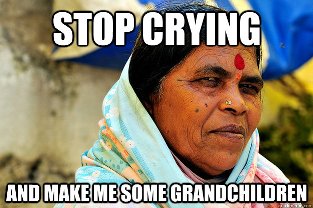
Here’s the bottom line. Marriage rates are in decline in developed countries as a consequence of higher living standards. Individuals in developed societies stay single longer primarily to establish themselves in their career, and to be financially stable enough to support a family. These elements are the key markers of a well-established community in a developed society.
And these trends in our community are encouraging. This means that young Tamil women and men in the diaspora are entering professional career paths and working towards becoming more financially stable. The result is a more highly educated diaspora, a bigger network for Tamil professionals, and the next generation of Tamils will grow up in a more affluent home with more opportunities.
Honestly, it is time for us to accept that we are adults. We need to take ownership for things that don’t go our way. If you are still single in your 30s, it’s by your own choice. It isn’t that a girl rejected you because you are perfect and therefore she is wrong. It’s because you are not what she wanted. Come on, grow up.
Want to share your input? E-mail us at editor@tamilculture.ca. We will get back to you shortly.

